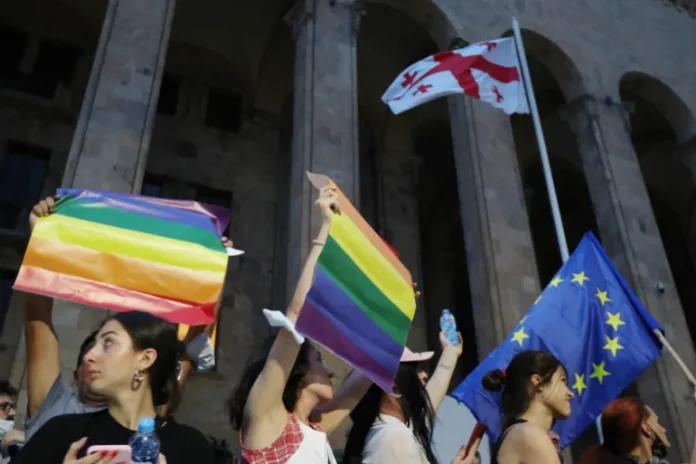Georgian President Salome Zourabichvili declined to sign a bill that severely restricts LGBTQ+ rights in the country and copies legislation passed in neighbouring Russia, according to AP News.
Zourabichvili returned the bill, introduced by the ruling Georgian Dream party and approved by lawmakers last month, to parliament. The parliament speaker now has five days to sign it.
The bill includes bans on same-sex marriage, adoption by same-sex couples and public endorsement and portrayal of LGBTQ+ relationships in media. It also prohibits changing gender designations in official documents.
Parliament finally approved the measure as Georgia was preparing to vote in parliamentary elections. The move was seen by many as an attempt by the ruling party to win the support of conservative groups. However, human rights advocates and LGBTQ+ activists criticised it for further marginalising the vulnerable community.
The anti-LGBTQ+ bill sparked comparisons to Russia, a country with “traditional family values.” In Georgia, the LGBTQ+ community experienced challenges even before the new law was put forward.
Anti-LGBTQ demonstrations and violence were commonplace, with hundreds of gay rights opponents storming the LGBTQ+ festival in the Georgian capital last year, forcing the event to be cancelled. This year, tens of thousands of people marched in Tbilisi to promote “traditional family values.”
European aspirations
Just one day after parliament finally approved the anti-LGBTQ+ bill, a transgender actor and model Kesaria Avramidze was stabbed to death in her flat in the capital Tbilisi. Human rights activists are concerned that the bill will provoke more violence.
Zourabichvili has long been at odds with the ruling party and vetoed a “foreign influence” law passed by parliament earlier this year. The legislation requires media and non-governmental organisations to register as “pursuing the interests of a foreign power” if they receive more than 20 per cent of their funding from abroad.
Georgia, with a population of 3.7 million, officially applied to join the EU in 2022 after the outbreak of war between Ukraine and Russia in 2022. However, the bloc halted its accession in response to the “foreign influence” law and froze some of its financial support. The US also imposed sanctions on dozens of Georgian officials in response to the legislation.
Many Georgians supported Ukraine when Kyiv fought against Moscow in 2022. However, the Georgian government refrained from joining sanctions against Moscow, banned dozens of Kremlin critics from entering the country and accused the West of trying to drag Tbilisi into open conflict against Russia.
